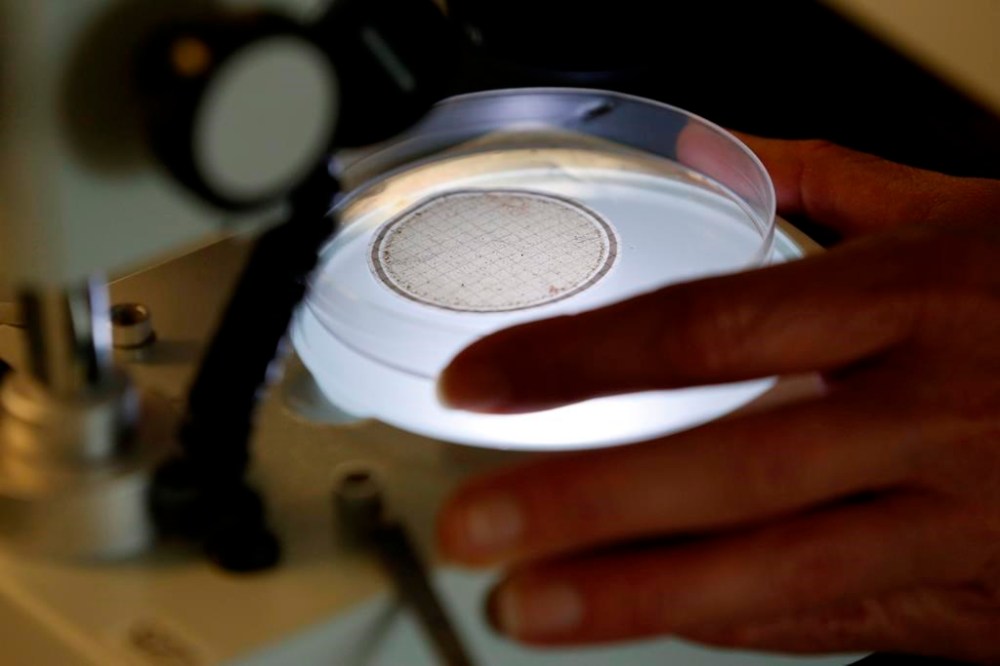Scientists feel interference in research has lessened but still occurs: survey
Advertisement
Read this article for free:
or
Already have an account? Log in here »
We need your support!
Local journalism needs your support!
As we navigate through unprecedented times, our journalists are working harder than ever to bring you the latest local updates to keep you safe and informed.
Now, more than ever, we need your support.
Starting at $15.99 plus taxes every four weeks you can access your Brandon Sun online and full access to all content as it appears on our website.
Subscribe Nowor call circulation directly at (204) 727-0527.
Your pledge helps to ensure we provide the news that matters most to your community!
To continue reading, please subscribe:
Add Brandon Sun access to your Free Press subscription for only an additional
$1 for the first 4 weeks*
*Your next subscription payment will increase by $1.00 and you will be charged $20.00 plus GST for four weeks. After four weeks, your payment will increase to $24.00 plus GST every four weeks.
Read unlimited articles for free today:
or
Already have an account? Log in here »
Hey there, time traveller!
This article was published 30/11/2023 (712 days ago), so information in it may no longer be current.
Nearly one in 10 scientists say they have experienced political or workplace pressure to alter their findings, suggests a newly published paper surveying hundreds of researchers in government, academia and the private sector.
The survey concludes the situation has improved from about a decade ago but still occurs — particularly to environmental scientists, female or young scientists and those from marginalized communities.
“What was clear to us from this research was there’s a wide array of researchers who say their work was interfered with,” said Manjulika Robertson, a graduate student at Halifax’s Dalhousie University and the lead author on the paper, published in the journal Facets.

Robertson said interference with scientific research can come in pressure to change results, withdrawal of funding or restrictions on communicating findings. Self-censorship in an attempt to avoid those conflicts can also affect scientific inquiry.
Almost all — 92 per cent — of the 741 respondents in the survey felt they had experienced one of those constraints at some point in their careers.
Many said the situation had improved over the last decade. But the issue hasn’t disappeared.
“Many took the opportunity to say this is happening now,” said Robertson.
Nine per cent of respondents said they had felt pressure to alter their conclusions in ways with which they weren’t comfortable. Of those, about a quarter said they’d been asked to downplay environmental risk and 18 per cent said they were asked to make their results conform with existing policy.
Of the total respondents, 16 per cent said they had been restricted from communicating their results to the public. A third agreed to some extent that they knew of cases where interference created a health and safety risk to the public.
“Climate change and pollution were the research areas most often reported as constrained,” the report says.
Robertson acknowledged the survey had limits.
Self-selection may have influenced the results, as researchers who have experienced interference may have been more likely to respond. The survey was also limited to English-speaking scientists.
As well, Robertson said not all interference is ill-intentioned. Funding requests may be denied because the proposed research doesn’t match the funding organization’s goals.
“There is curiosity that exists among researchers that is unrelated to what their department is mandated to pursue,” she said.
Sarah Laframboise of Evidence For Democracy, a group that promotes science education and science-informed policy, said Robertson’s findings confirm what her organization has found.
Laframboise, whose group assisted in the early stages of the survey, said improvements in Canada’s science climate still have a way to go.
“Scientific integrity is still being challenged,” she said. “This study proves that.
“Science is a public good,” said Laframboise.
“The more the public sees the use of evidence in decision-making, they have more trust in government and they have more trust in decisions.”
Robertson said interference in research and restrictions on scientific communication harm Canada’s ability to discuss issues and make effective policy.
“When environmental researchers are unable to conduct their work, we lose that scientific knowledge that’s necessary to inform our approach to grand challenges,” she said.
“When it isn’t communicated effectively, it can also affect our ability to make democratic decisions.”
This report by The Canadian Press was first published Nov. 30, 2023.
